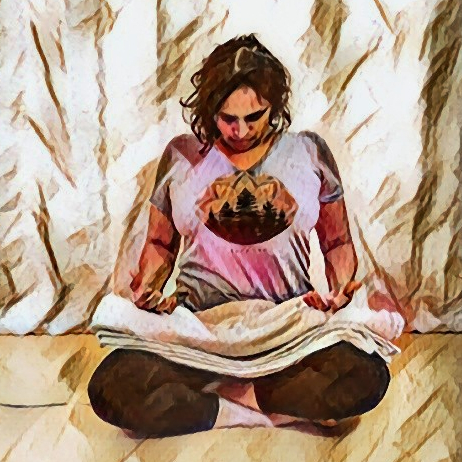Yoga Studies
These are some of my notes, impressions, images in study of yoga.
Yoga citta vritti nirodaha. Yoga Sutras of Patanjali
Translations
- Yoga is the cessation of movements in the consciousness. B.K.S. Iyengar, Light of the Yoga Sutras of Patanjali
- Yoga is the stilling of the changing states of the mind. Edwin Bryant, The Yoga Sutras of Patañjali: A New Edition, Translation, and Commentary
~
The word Yoga is derived from the Sanskrit root yuj meaning to bind, join, att and yoke, to direct and concentrate one’s attention on, to use and apply. B.K.S. Iyengar, The Illustrated Light on Yoga
~
Yoga is a moksa-sastra, the science of emancipation and liberation. Yoga is the path that cultures the body and senses, refines teh mind, civilizes the intelligence and takes rest in the core of our being. B.K.S. Iyengar, Astadala Yogamala Volume 5
~
The traditional meaning of yoga is to unite the individual soul to the universal soul, which is rather abstract and difficult for the common people to understand. So the simple definition is that yog is to uplift the body to the level of intelligence of the mind, and then take the vibrant body and intelligence of the mind, to come in contact with the serene spirit within. B.K.S. Iyengar, Astadala Yogamala Volume 5
Chapter 2, Verse 29: yama-niyama-āsana-prāṇāyāma- pratyāhāra-dhāraṇā-dhyāna-samādhayaḥ-aṣṭau-aṅgāni
Patanjali codified the theory and practice of yoga.
A book by Vyasa.
A conversation between Arjuna and Krishna takes place on a battle field. Discourse on Karma yoga the path of action; Bhakti yoga the path of devotion; and Jnana yoga the path of knowledge. The Bhagavad Gita is a section of the Mahabharata.
"The Bhagavad Gita teaches us how to live. How to act in the world without desire." -Edwin Bryant
Credited to Sage Vyasa who is revered as a codifier of oral traditions that have been in existence for millennia.
Conventionally dated in the fifth century B.C.E.
An Indian epic about the Pandavas and Kauravas integrates philosophical discourses. The world's longest epic poem at 220,000 lines.
'The Vedas themselves are a vast collection of poetry, hymns, and prose that govern worship and conduct. The also incorporate the Upanishads, or "esoteric doctrine", that contain some of humanity's most profound and most searching explorations of the origins, nature, and purpose of existence." -T.K.V. Desikachar

